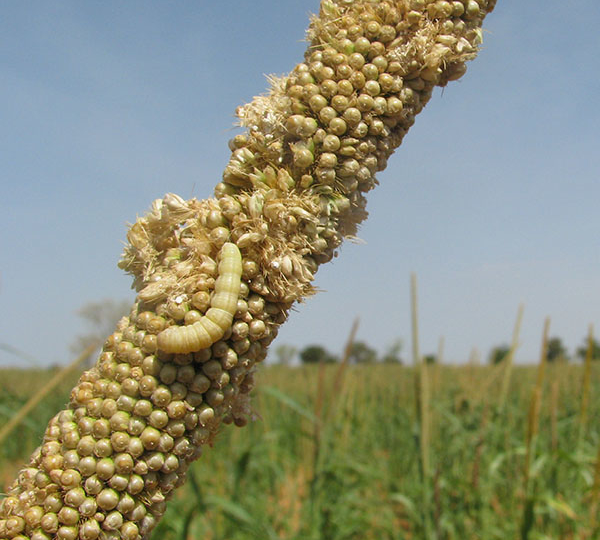
Sorghum/Millet Improvement II
Lead Organization:
International Crops Research Institute for the Semi-Arid Tropics - ICRISAT Niger
Partner Organizations:
UGCPA, INERA, AMSP, ICRISAT Mali, AOPP, ASEDES, ULPCD, IER, Mooriben, Fuma Gaskiya
Community of Practice:
Countries:
Burkina Faso Niger Mali
Duration:
5/2010—5/2014
Overview:
This project is lead by ICRISAT Niger in partnership with INRAN in Niger, INERA in Burkina, IER in Mali and farmers’ organizations in the three countries. It works to promote genetic diversity in farmer’s fields and in-situ conservation of farmer-preferred germplasm as means of reducing the vulnerability of the production systems and enhancing production stability.
During its first phase, the project combined the concept of dynamic genepool management with farmer-participatory recurrent population improvement and variety development in pearl millet (Niger and Mali) and sorghum (Burkina Faso and Mali). It created site-specific diversified populations and conducted at least three cycles of recurrent population improvement.
During the current second phase, the project team will now have the opportunity to evaluate, through a molecular marker diversity study, whether the approach and methods used in the first phase really contributed to in-situ conservation of genetic resources and to diversification of the germplasm grown in farmers’ fields. It is expected that this would help to refine future participatory breeding and germplasm in-situ conservation strategies.
Grant Aims:
- Assess the effects of farmer-participatory dynamic genepool management in pearl millet and sorghum on the genetic diversity in derived sub-populations using molecular markers, and to study the contribution of this approach to in-situ conservation of genetic resources.
- Continue participatory dynamic genepool management in existing and new, trait-specific populations and develop new cultivars.Identify most efficient participatory selection methods.
- Develop a scheme of marker-assisted recurrent selection (MARS) for “farmer preference” under defined production constraints in pearl millet and sorghum, thereby combining local knowledge with modern breeding tools.
Outputs and Outcomes:
- The most important outcome would be the increased adoption of improved pearl millet and sorghum varieties with farmer-preferred traits, which in turn would translate to greater yield and food security.
- A second important outcome would be the validation of an alternative system of plant breeding and germplasm conservation that enhanced diversity while stabilizing yield.
- A third outcome would be capacity building among national breeders and farmer-participants.